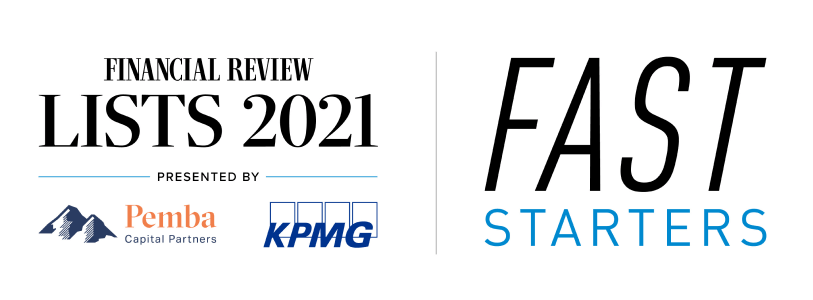Secure Business Loans
Most businesses will find that, at some point, they’ll need to spend money to earn money! There are numerous reasons why a business might require a loan - whether it’s for purchasing office equipment, hiring additional employees, buying inventory or financing an expansion. A secured business loan is a common way to finance your growth, while also enjoying lower interest rates. Secured business loans are best for either capital intensive companies, or to purchase an income yielding asset.
What is a secured business loan?
There are many different types of business loans, but you may find that certain types of loans are referred to as ‘secured loans.’ This means that the financing is secured or supported by a form of collateral. This is your way of promising to repay the loan. Putting up collateral reduces the risk for the lender, as the collateral can be used or sold to the lender in the event that you default on the loan. Businesses that prefer not to pledge collateral or that are unable to do so should consider an unsecured business loan
Secured loans are typically offered by traditional financial institutions such as national or regional banks, as well as some credit unions. Because there is collateral, lenders are often able to offer lower interest rates and longer terms, which can save you money while still ensuring you get the financing you need, when you need it most.
What can be used as collateral for a secured business loan?
Collateral is something that you or your business owns that you pledge as security for repayment. The importance of collateral is that it reduces the risk for lenders, because even if you default on the loan, they will not lose all of the money they provided.
There are lots of different things that might serve as collateral, depending on your business. Here are examples of what you can offer up to secure your business loan.
-
Property
Property is a high-value asset that is commonly used to secure a loan. In fact, real estate, such as a home or home equity is among the most common type of collateral used by borrowers today. Other types of property that can be used as collateral includes things like business equipment, motor vehicles, boats and more.
-
Cash or Savings
If you’re applying for a loan through the financial institution in which your account is based, you may be able to get what’s called a ‘cash secured loan’. If you default on the loan, the bank can liquidate your account. Lenders prefer this type of collateral because it makes it very easy for them to get their money back if you default and they do not need to sell a physical asset such as a home to recoup the losses.
-
Invoices
One of the reasons small business need a loan in the first place is to better manage their cashflow. And one of the most common causes of these issues is when a business’s customers don’t pay invoices on time. Luckily, you can use those unpaid invoices as collateral, because they represent income for your business. A lender may agree to accept collateral based on outstanding invoices through a process called invoice financing, which may also be called accounts receivable financing.
-
Inventory
If you run a business with a lot of inventory or high-value products, you might be able to qualify for inventory financing. In this situation, your inventory is offered up as collateral, in the event that you are unable to sell it and default on your loan.
-
Blanket Liens
A lien is a legal claim placed over an item of property to secure payment. As the name suggests, a blanket lien covers any and every asset the business owns. That means that the lender can seize and sell whatever collateral it wants to recoup its losses in the event that the business defaults on the loan.
What is a Personal Guarantee?
Financial institutions understand that, for many small businesses, the business’s financial health is directly tied to that of its owner. That’s why many lenders may enquire about your personal credit history or require a personal guarantee.
A personal guarantee is a written promise from a business owner or executive guaranteeing payment on a loan. If the business cannot repay the debt, the individual guarantor is personally responsible. If you sign a personal guarantee and you don't repay the loan, it could hurt your credit score.
Secured Loans vs Unsecured Loans: Which is Better?
Determining which loan is best for your business will largely come down to factors such as your annual turnover, credit history, length of time in business, and your loan amount and purpose.
It is important to note the main difference between a secured and an unsecured business loan is the fact that a secured loan requires collateral in the form of a valuable asset you own (such as your home), whereas an unsecured loan does not require you to provide an asset as collateral.
Because of this, secured loans often have a lower interest rate and allow you to borrow larger amounts to be repaid within longer time frames (such as from 12 months up to 30 years). The application process is much stricter, however, often taking anywhere from 3-4 weeks to simply receive an outcome.
Unsecured loans, on the other hand, occur over shorter time frames, often requiring repayment in 3 – 12 months. Because of this, the application can be approved within a much shorter period. In fact, Lumi determines all unsecured loan application outcomes within just a few hours, allowing approved small business owners to receive their funds even on the same business day.
To compare the full list of pros and cons regarding secured and unsecured loans, please visit our Business Loans page.
When a Secured Business Loan Might Work for Your Business
Secured business loans can be used by businesses of all shapes and sizes, but they might be most applicable for certain types of situations including:
-
Established businesses
-
Businesses requiring a large amount of financing
-
Financing an expansion, renovations or businesses that are refinancing
-
Businesses with strong credit history
-
Businesses with valuable assets
Important Tips to Remember about Secured Business Loans
-
Consider your collateral
With a secured business loan, you are essentially giving your lender permission to seize these assets if you default on your loan.
-
Shop around for the best deal
The best loan is the one you can get approved for, so shop around to find the loans that fit your business needs. Secured loans are typically offered by traditional banks but there are alternative lenders that may also have short term options.
-
You don’t have to accept the terms
After you’ve filled out the necessary paperwork, proven ownership of your chosen collateral, and been approved, your lender will put forward an offer. If the terms don’t work for you continue to shop around.
-
A secured business loan might not be best for your business
Secured loans are common but that doesn’t mean they are best for your business. Be sure to understand the difference between secured and unsecured business loans to find out what is best for you.
-
Be prepared for a longer approval process
Applying for a secured loan means meeting stricter requirements than an unsecured loan and approval may take around three or four weeks.
Still not sure if a business line of credit is right for you? Compare other types of loans to learn more or consider an unsecured business loan




